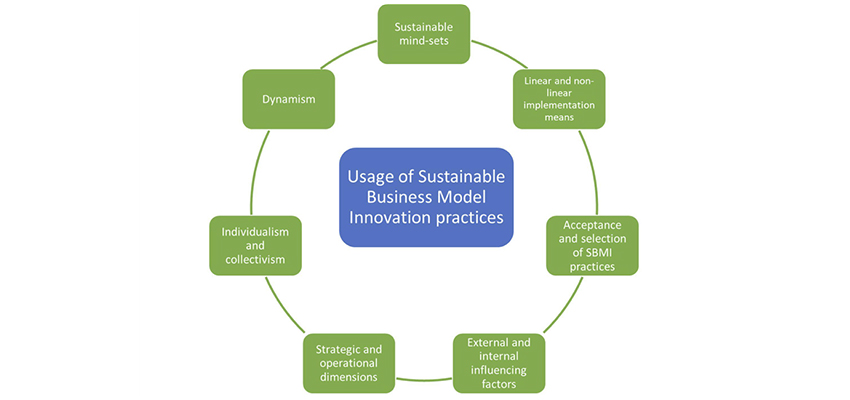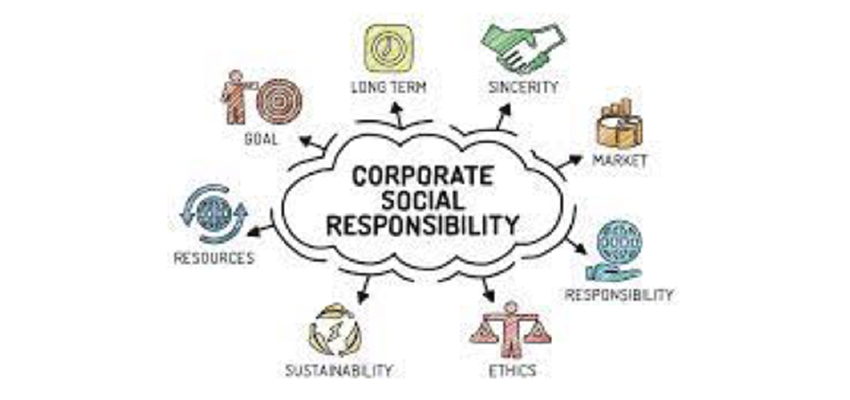“A business that makes nothing but money is a poor business.” ~ Henry Ford
In this era of marketisation and globalisation, businesses are playing a more critical role than ever in building a sustainable future owing to a majority of global concerns including social injustice, resource depletion, and climate change. To provide upcoming company leaders with the information and abilities necessary to successfully negotiate the complicated terrain of ethical, social, and environmental responsibilities, the BA (Hons) Business Management program acknowledges the need to integrate sustainable business practices into its curriculum.
Discovering and Learning Sustainable Business Practices:
Integrating economic, social, and environmental factors into organisational decision-making is a key component of sustainable business operations. It aims to provide long-term benefits for the company and society beyond simple regulatory compliance.
Interdisciplinary Approach in the BA (Hons) Business Management curriculum promotes cooperation. Students are exposed to perspectives from social sciences, environmental science, and other disciplines, which promotes a comprehensive grasp of sustainability issues and solutions.
Furthermore, fostering an inventive and entrepreneurial attitude is a necessary step on the path to sustainable business practices. The program’s innovation and entrepreneurship labs allow students to develop, test, and present sustainable business concepts. These labs act as creative hubs, enabling students to develop and apply solutions that meet the demands of the environment and society.
Integration into Curriculum:
The commitment of the BA (Hons) Business Management program to integrating sustainability across several courses is one of its distinguishing aspects. The many facets of sustainable business practices are introduced to students, ranging from marketing to finance. They examine successful sustainable business models through case studies and examine situations in which businesses encountered difficulties as a result of non-sustainable activities. With this all-encompassing approach, graduates are guaranteed to be knowledgeable about sustainability concerns and equipped to put solutions into practice.
Achieving sustainable business practices:
-Use of sustainable materials during the manufacturing process
-Improvising efficiency towards management of resources
-Reducing greenhouse gas emissions
-Implementation of an efficient supply chain network
-Sponsoring education funds for youth
There are 7 known pillars behind the goal of achieving sustainable business practices:
-Technology
-Capital
-Finance
-People
-Strategy
-Legal
-Communication
Inventiveness and Business:
Innovative ideas and an entrepreneurial spirit are frequently needed for sustainable business practices. In order to help students create sustainable company models that address societal and environmental concerns, the BA (Hons) Company Management program encourages creativity and problem-solving abilities. Fostering an entrepreneurial mindset, the program aims towards educating students to explore and achieve milestones at business keeping in row the ethical and sustainable principles.
Corporate social responsibility, and ethics:
The foundation of sustainable business practices is ethics. Corporate social responsibility and moral decision-making are valued highly in the BA (Hons) Business Management curriculum. Students learn how ethical leadership may contribute to good societal change by investigating the effects of corporate activities on local and global societies. Students learn about the moral conundrums that businesses face and devise solutions through coursework and group discussions.
Working together with industry partners:
The BA (Hons) Business Management program works with industry partners who are dedicated to sustainability to close the gap between theory and practice. Students can experience applying their knowledge in a real-world situation through internships, guest lectures, and real-world projects. This practical encounter deepens their comprehension of learning and prepares them to deal with unexpected challenges.
Future Leader Preparation:
The BA (Hons) Business Management program graduates possess not just a robust grounding in conventional business principles, but also a profound comprehension of the role firms play in moulding a sustainable future. These future leaders will be well-equipped to navigate the ever-changing business landscape while positively influencing society and the environment, owing to their abilities in innovation, ethical leadership, and corporate social responsibility.
Benefits of Sustainable Business Practices:
-Lower Costs: By taking steps like improving energy efficiency, sustainable business practices help to lower costs. Employing environmentally friendly practices will help businesses use less energy, which will result in cheaper power bills. Businesses that depend significantly on electricity, like industry and retail, will be especially benefited by this.
–Increased earnings: Better operational efficiency and cheaper overhead expenses frequently result in higher earnings for sustainable enterprises. There is also a strong association between sustainability and financial performance because these companies tend to perform better than the market in the long run.
-Enhanced contentment among staff members: Workers in sustainable companies are typically more content and invested in their jobs, which increases worker productivity and decreases staff attrition. With adequate ventilation, natural lighting, and ergonomic furniture, sustainable enterprises typically offer a healthier work environment. This helps in lowering stress levels and boosting worker morale. Furthermore, ethical labour practices and sustainable business practices are linked.
– A greater sense of social duty: Social responsibility is essential for many reasons, and it is increasingly prevalent in sustainable enterprises. Customers who wish to support companies that are enhancing social conditions in their areas, for instance, will find the company more appealing. Additionally, it helps fortify their relationships with the communities in which they do business and fosters goodwill among the population.
Summary:
A progressive approach to education is reflected in the BA (Hons) Business Management program’s emphasis on sustainable business practices. Through fostering a dedication to moral and responsible business practices, the curriculum equips students to act as change agents in the business sector, resulting in a more sustainable global economy. To put it simply, the BA (Hons) Business Management degree is a transforming voyage of discovery rather than a simple information dissemination course. Students excel in the program not only as business professionals but also as stewards of a sustainable and socially conscious future, due to a combination of theoretical understanding, real-world applications, and a dedication to responsible leadership. Finding and mastering sustainable business practices is a journey that forms and builds the attitude of tomorrow’s corporate leaders.
Mont Rose college also offers the BA(Hons) Business Management course from BUCKINGHAMSHIRE NEW UNIVERSITY.
For more information, please refer to the below mentioned links:














